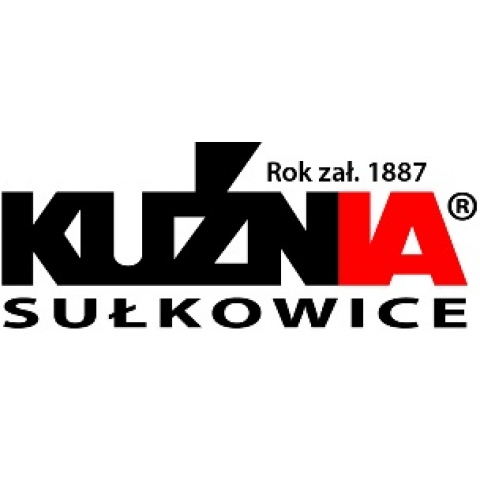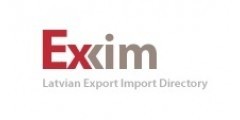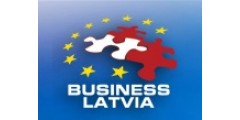Selected categories:
- Metals, metal processing, founding
Plastic processing - forging, pressing, stamping and roll forming of metal
ADMET Sp. z o.o.
05-230 Kobyłka
mazowieckie, Poland
Amstal
32-085 Modlnica
małopolskie, Poland
ATES - Warsztat Perforacji Blach
05-074 Długa Kościelna
mazowieckie, Poland
Blachy Ziemiński
22-400 Zamość
lubelskie, Poland
EURO-TERM ŁUKASZ KOWALSKI
86300 Grudziądz
kujawsko-pomorskie, Poland
F.P.U.H Blach-Stal
32-700 Bochnia
małopolskie, Poland
Fabryka Armatur SWARZĘDZ Sp. z o.o.
62-020 Swarzędz
wielkopolskie, Poland
FERROPLAST Zbigniew Rybicki
78-300 Świdwin
zachodniopomorskie, Poland
Fludra Przedsiębiorstwo Metalowe T.M.T. Fludra S.j.
63-000 Środa Wielkopolska
wielkopolskie, Poland
Help needed ?
If you have not found the desired product, company, service or the searching results are not satisfactory for you, do not hesitate to contact us and tell what you are looking for or what you need. We will send your inquiry directly to the interested companies.
Write to us
See also industries
Did you know that:
Metal forming is a key process in the manufacturing industry, encompassing a range of technologies that allow shaping of metals through deformation without changing their volume. In Poland, this market is developing rapidly, covering a wide range of processes such as forging, stamping, extrusion, and rolling of metals. Each of these processes has broad applications in many industrial sectors, from automotive to aerospace, and even the production of tools and machinery.
Forging
Forging is one of the oldest metalworking processes, involving the deformation of metal under high pressure. Poland has a long tradition in the forging industry, and forging is widely used in the production of structural components such as shafts, gears, machine parts, and tools. Modern forges use advanced presses and hammers, which enable high precision and the production of parts with high durability. Poland is one of the key producers of forged components in Europe, especially for the automotive and machinery industries.
Stamping
Stamping is a process that involves shaping metal parts under pressure exerted by dies. In Poland, this process is applied in the production of various components, such as housings, panels, and parts for the electronics and automotive industries. Stamping typically occurs in cold conditions, but it can also be done at high temperatures, allowing for the desired material structure. In Poland, stamping is widely used in sheet metal production, as well as in the stainless steel and aluminum sectors.
Extrusion
Extrusion is a process in which material is pushed through a die to produce parts with a constant cross-sectional shape. In Poland, metal extrusion is commonly used in the production of pipes, profiles, and components for the construction and automotive industries. Thanks to the ability to produce precise, large-scale parts, this process plays a significant role in manufacturing components that require both strength and aesthetics. Metal extrusion is also used in the production of parts for household appliances and in the energy sector, especially for producing machine and equipment components for energy applications.
Rolling
Metal rolling is a process in which material is passed through a set of rollers, resulting in its elongation and shaping into a specific form. Rolling is one of the most important manufacturing processes in the metallurgical industry, particularly for the production of sheets, strips, pipes, and other large-surface elements. In Poland, rolling is crucial for the production of steel, aluminum, and other alloys, with numerous modern rolling mills providing a wide variety of metal products for both the construction and automotive industries. Thanks to ongoing technological advancements, the rolling process in Poland has become more efficient and precise, enabling the production of components with high-quality requirements.
What are the trends and challenges in the market?
The metal forming market in Poland is growing rapidly, with a focus on process automation, quality improvement, and increased energy efficiency. These transformations are in response to the growing demand from the automotive and aerospace industries, as well as global trends in the production of lightweight, durable materials.
One of the biggest challenges in this sector is the need to modernize machinery parks and adapt technologies to meet increasing environmental protection requirements. In Poland, there is a noticeable increase in investments in metal recycling technologies and efforts to improve the energy efficiency of manufacturing processes.
Conclusion
The metal forming market in Poland is one of the key industrial sectors, encompassing a wide range of technologies such as forging, stamping, extrusion, and rolling. The development of this market is closely linked to the needs of manufacturing industries such as automotive, energy, and construction. With investments in modern technologies, Poland has the potential to maintain its position as a leader in metal component production on the European market.

 pl
pl  en
en  de
de  es
es  fr
fr  it
it  pt
pt  ru
ru  sv
sv 














